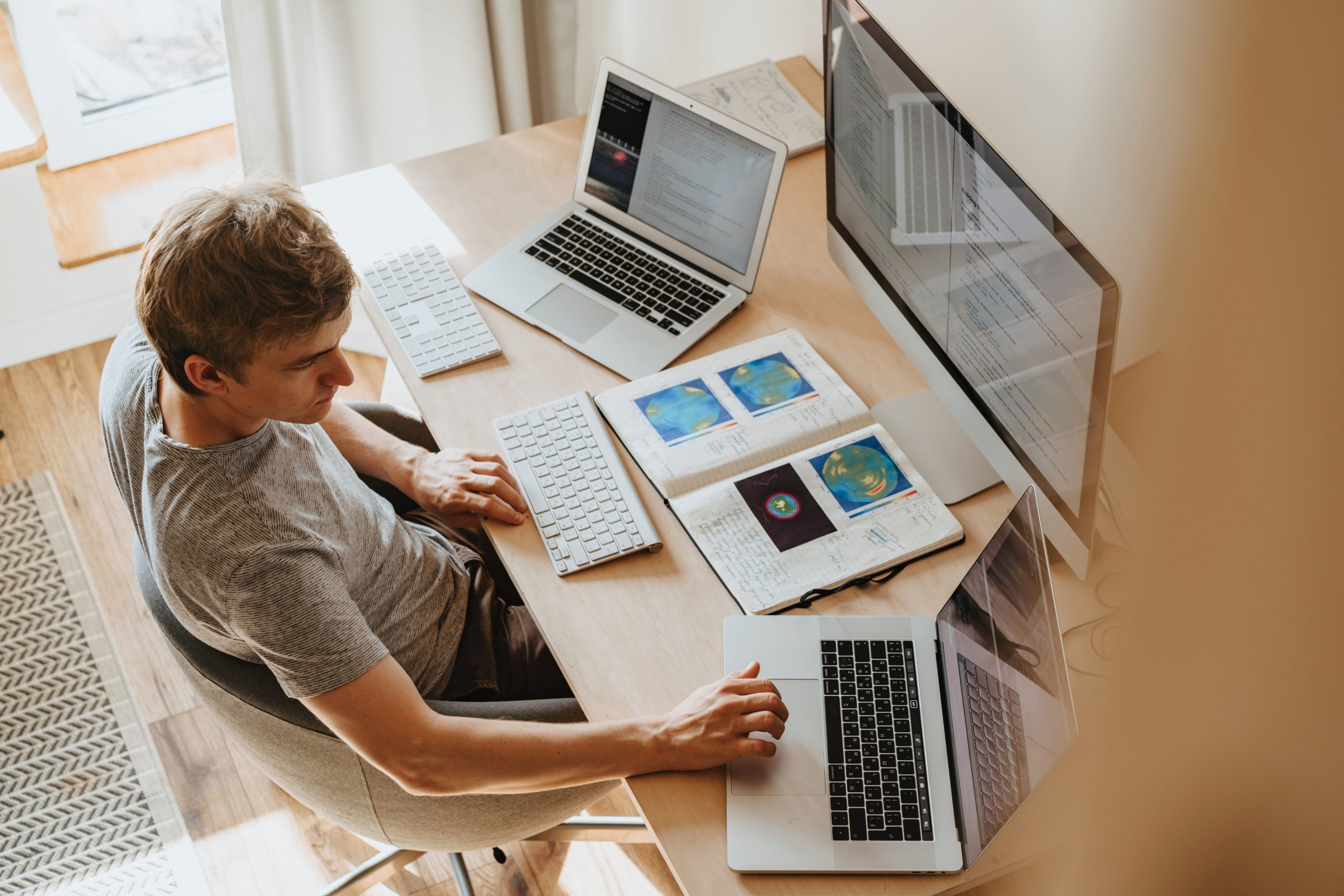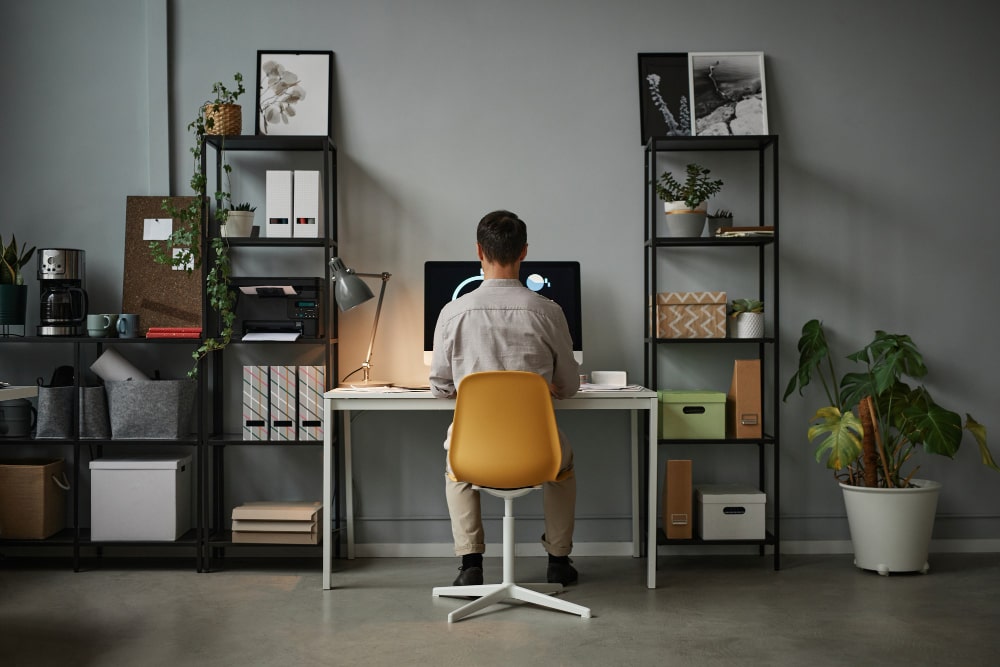
Hey there! Do you ever feel like your whole life is just an endless cycle of sitting at your desk, staring at a screen, and trying to keep up with the demands of work and social media? As much as we depend on technology to stay connected and be productive, our modern digital lifestyle is seriously impacting our health and wellbeing. From back pain and weight gain to sleep deprivation, anxiety, and even depression, our sedentary habits, information overload, and tech addictions are taking a major toll. But don’t worry – while these modern lifestyle issues are definitely concerning, there are practical solutions we can implement to get back on track. By making small changes to our daily routines like taking standing or walking breaks, establishing tech-free times, and consciously unplugging, we can reduce stress, improve focus, and protect our mental and physical health. Even just being more mindful of how we spend our time and balance priorities can make a big difference. Ready to feel healthier and happier? Let’s talk about how we can build better habits even in our digital world!
1- Sedentary Lifestyles in the Digital Age

- Our modern digital world has led many people to live increasingly sedentary lifestyles. Sitting for prolonged periods in front of screens for work, entertainment, and communication contributes to a range of health issues.
- Common problems associated with sitting too much include weight gain, back and neck pain, cardiovascular disease, diabetes, and even some cancers. Extended sitting slows metabolism, decreases calorie burn, and can promote bad posture.
- The reasons for sedentary behavior are clear – desk jobs require prolonged sitting, and we spend more time than ever on devices for both work and leisure. Increased reliance on technology for communication has also reduced in-person interactions and physical activity.
- To counteract the ill effects of too much sitting, it’s important to take regular standing and movement breaks throughout the day. Setting reminders to get up every 30 minutes can help. Using standing desks or stability balls for chairs promotes movement too.
- Making exercise a daily habit, even just going for a 30-minute walk, can vastly improve health. Other solutions include scheduling outdoor time, choosing active transport, and generally reducing recreational screen time. Prioritizing movement is key to combating sedentary risks in our tech-driven world.
2- Sleep Deprivation: Causes and Solutions for the Work From Home Generation

The pandemic led to major shifts in work culture, with more people working remotely than ever before. But this new normal comes at a cost—many are struggling with sleep deprivation.
- Irregular sleep patterns and lack of routine while working from home can disrupt your natural sleep-wake cycle. No longer having the morning commute or other signals to start and end the workday doesn’t help.
- Blurred boundaries between work and personal time also play a role. When the office is just the next room, it’s tempting to burn the midnight oil to finish a task.
- Too much screen time, especially before bed, can negatively impact sleep. The blue light emitted from devices like laptops and phones suppresses melatonin production.
To improve sleep quality and feel refreshed:
- Maintain a consistent sleep schedule, even on weekends. Go to bed and wake up at the same time daily.
- Limit screen use at night and avoid digital devices at least 30 minutes before bedtime.
- Create an evening wind-down routine to relax and decompress before sleep. This might include yoga, reading or taking a bath.
- Make sure your bedroom is cool, quiet and dark. Consider blackout curtains and a white noise machine.
- Avoid large meals, alcohol and caffeine close to bedtime. Stay hydrated by drinking water during the day.
With some simple lifestyle adjustments, you can overcome sleep challenges in our digital world and be productive at work while getting your much-needed zzz’s.
3- Unplugging From Technology: Finding Balance in a Hyperconnected World

- The always-on culture promotes constant connectivity, making it hard to detach from devices. Set tech-free times or days to give your brain a break.
- Disable non-essential notifications and limit checking emails or social media to specific times. This reduces distractions and lets you focus.
- When spending time with family or friends, put phones away to have meaningful interactions without digital distractions.
- Do activities that don’t involve screens like reading, exercising, meditating or enjoying nature. These provide a tech detox while boosting well-being.
- Be mindful of your device usage and how much time different apps consume daily. Use tracking apps to stay aware and curb excessive tech time.
- Keep phones out of the bedroom for better sleep quality. The blue light from screens inhibits melatonin production, disrupting sleep cycles.
- If you find yourself constantly reaching for your phone out of habit, replace it with better alternatives like a book, puzzle or adult coloring book.
- Schedule tech-free vacations or staycations where you intentionally disconnect from devices and focus on relaxation. This provides a refreshing break.
- Don’t immediately check notifications first thing in the morning or right before bedtime. This creates unhealthy tech habits. Allow space before and after sleep.
- Set device-free times during meals, conversations or activities. Be present in the moment rather than digitally distracted. Quality time matters.
4- Sustainable Living in the Era of Fast Fashion and Takeout Culture
The popularity of fast fashion and convenient takeout options can make it challenging to adopt an eco-friendly lifestyle. But with some effort, we can shift towards more sustainable habits.
- Reduce clothing purchases – buy only what you truly need and will wear often. Shop at thrift and consignment stores.
- Avoid single-use plastics – carry reusable bags, bottles, and utensils. Say no to plastic straws.
- Cook at home – prepare simple meals rather than ordering takeout. Meal prep on weekends.
- Compost food scraps – turn waste into nutrient-rich soil for plants. Many cities offer compost bins.
- Conserve resources – take shorter showers, switch off lights, adjust thermostats. Every bit helps.
- Walk, bike or take public transit when possible – cut down on carbon emissions.
With some mindful changes, we can all do our part for the planet. Focus on quality over quantity in purchases, reduce waste, and make eco-conscious choices.
5- Navigating Financial and Mental Wellbeing in Modern Times

Finances and mental health are closely linked. As the cost of living rises, many face financial worries that can negatively impact mental health. Practicing mindfulness and smart money management can help find finding solutions of these modern lifestyle issues.
- Set a realistic budget accounting for essentials, savings, and fun. Having a plan reduces stress.
- Build an emergency fund to handle unexpected expenses without getting derailed. Start small if needed.
- Simplify expenses and avoid unnecessary purchases. Focus on needs vs wants.
- Seek free counseling resources if money stress feels overwhelming. Prioritize your wellbeing.
- Connect with supportive friends who lift your mood. Laughing together is free self-care.
- Practice gratitude for what you have. Appreciate life’s simple joys and blessings.
- Stay active with free or low-cost healthy habits like walking, yoga, meditation. Boosts mood and focus.
- Limit social media use. Comparing yourself financially to others breeds discontent.
- Get peaceful rest. Adequate sleep improves outlook and productivity.
With mindfulness, self-care, and smart money management, you can navigate financial stress while protecting your mental health and wellbeing. For these modern lifestyle issues, support is out there if you need it.
6- Difficulty in maintaining a healthy work-life Ratio

The always-on work culture fueled by technology can make it challenging to maintain balance between your professional and personal life. With work easily creeping into your home life, it’s vital to set boundaries.
- Be mindful of work hours. Avoid checking emails or taking calls outside of work time.
- Schedule time for hobbies, relationships, and self-care. Don’t let work dominate your whole life.
- Take regular breaks during work. Step away from your desk, stretch, go for a walk.
- Disconnect from technology in the evenings and weekends. You need downtime.
- Prioritize and limit workplace communication outside of office hours.
- If you must work extra hours, compensate with time off. Don’t overdo it.
- Leverage productivity tools to maximize your work time. Streamline tasks.
- Speak up if your workload is unmanageable. Renegotiate deadlines if needed.
The key is being intentional about maintaining work-life balance. Valuing your personal needs is vital for wellbeing. With some effort, you can prevent work from encroaching on your life.
7- Lack of Meaningful Social Connections.

In our technology-driven and fast-paced modern lifestyles, making time for quality interactions can be a modern lifestyle issue. People often deal with busy schedules, work pressures, and lack of time leading to social isolation.
- Prioritize socializing. Set aside dedicated time slots in your calendar for catching up with friends and family.
- Get involved in your local community. Join a club, volunteer group, or activity that lets you regularly interact with others who share your interests.
- Try hosting social events. Have people over for game nights, potlucks, or other casual gatherings.
- Use technology thoughtfully. Limit mindless social media scrolling. Instead, use apps and tools to thoughtfully connect with your loved ones.
- Improve your communication skills. Practice active listening, asking thoughtful questions, and being fully present during conversations.
- Nurture your closest relationships. Check in regularly with those you are closest with – your efforts will strengthen your bond.
Making meaningful social connections takes effort but pays off tremendously in terms of your overall health and happiness.
8- Impact of Lifestyle On the Environment

Our digital lifestyle contributes significantly to environmental issues like pollution, climate change, and resource depletion. As we increasingly consume more to support our busy lives, we generate massive amounts of waste and carbon emissions. Some of the modern lifestyle issues and their solutions:
- Our desire for the latest gadgets and rapid upgrade cycles leads to e-waste. Properly disposing of old electronics is key.
- Frequent air travel and vehicular transport increases carbon footprint. Consider public transport or carpooling when possible.
- Fast fashion and overconsumption deplete resources and causes pollution. Opt for sustainable brands, recycle, and repurpose items.
- Packaged foods and online shopping generate non-biodegradable waste. Use reusable containers and bags, and recycle packaging.
- Energy-intensive lifestyles and devices drive fossil fuel dependence. Conserve energy, use efficient appliances, and consider renewable sources.
Making eco-conscious choices and adopting greener practices can greatly reduce our environmental impact. Small consistent changes to our habits like reducing waste, consuming less, and using energy efficiently can make a big difference.
Read for More Health Tips: https://cityfurnish.com/blog/10-easy-ways-to-stay-fit-and-healthy-fitness-tips
Take Away
You don’t have to go off the grid completely to handle these modern lifestyle issues and improve your wellbeing, but being more mindful about how you live, work, and interact in our digital world can lead to big changes. Make small adjustments to your daily routines, limit distractions, and find balance between your online and offline lives. Don’t forget to make time for your mental and physical health through self-care practices like exercise, socializing, and relaxing hobbies. With more intention and moderation, you can thrive in our modern world while staying true to your values and priorities. Now get out there, make those positive changes, and start feeling better!

